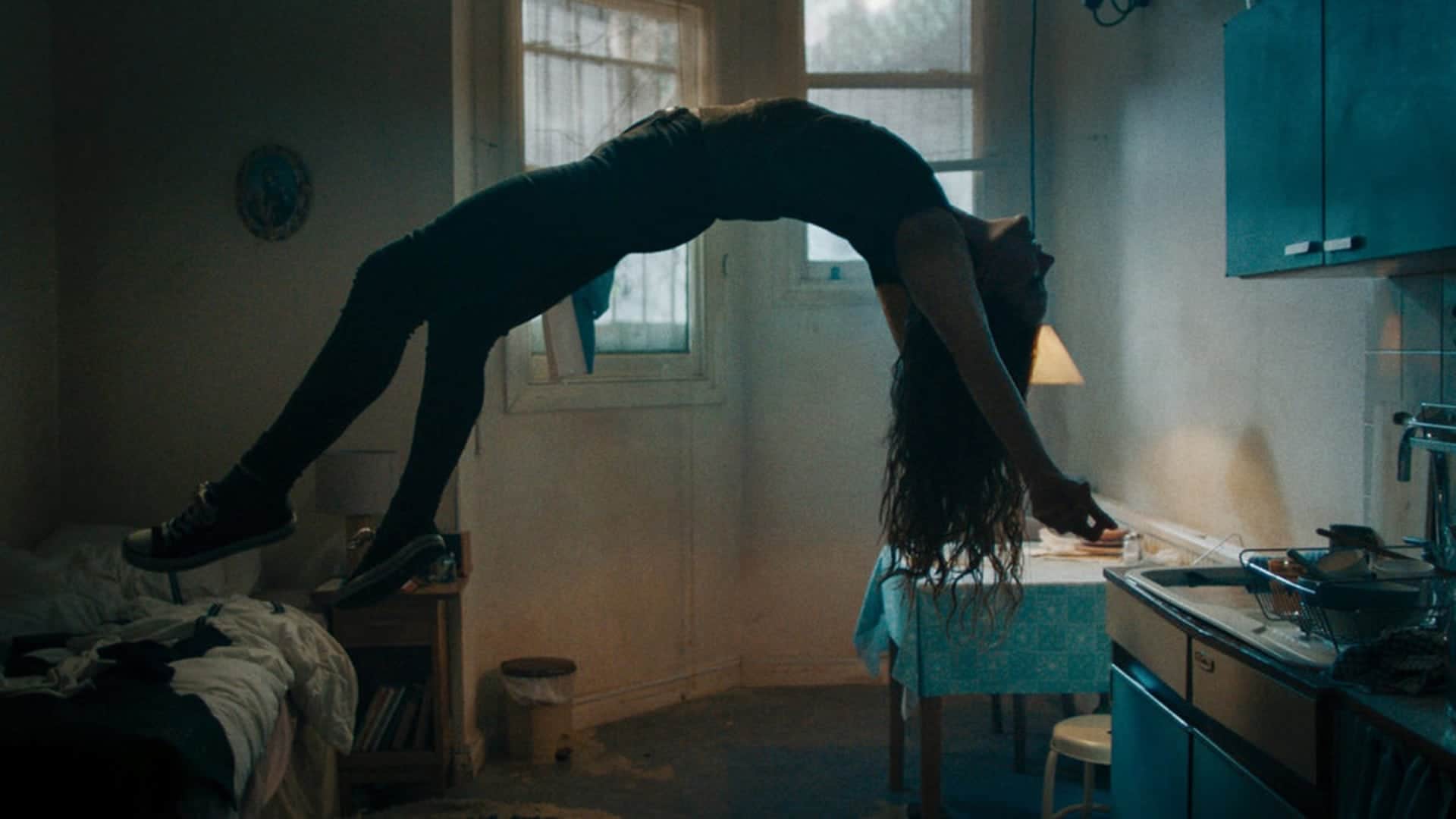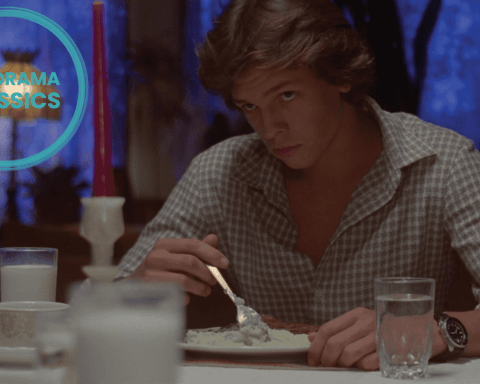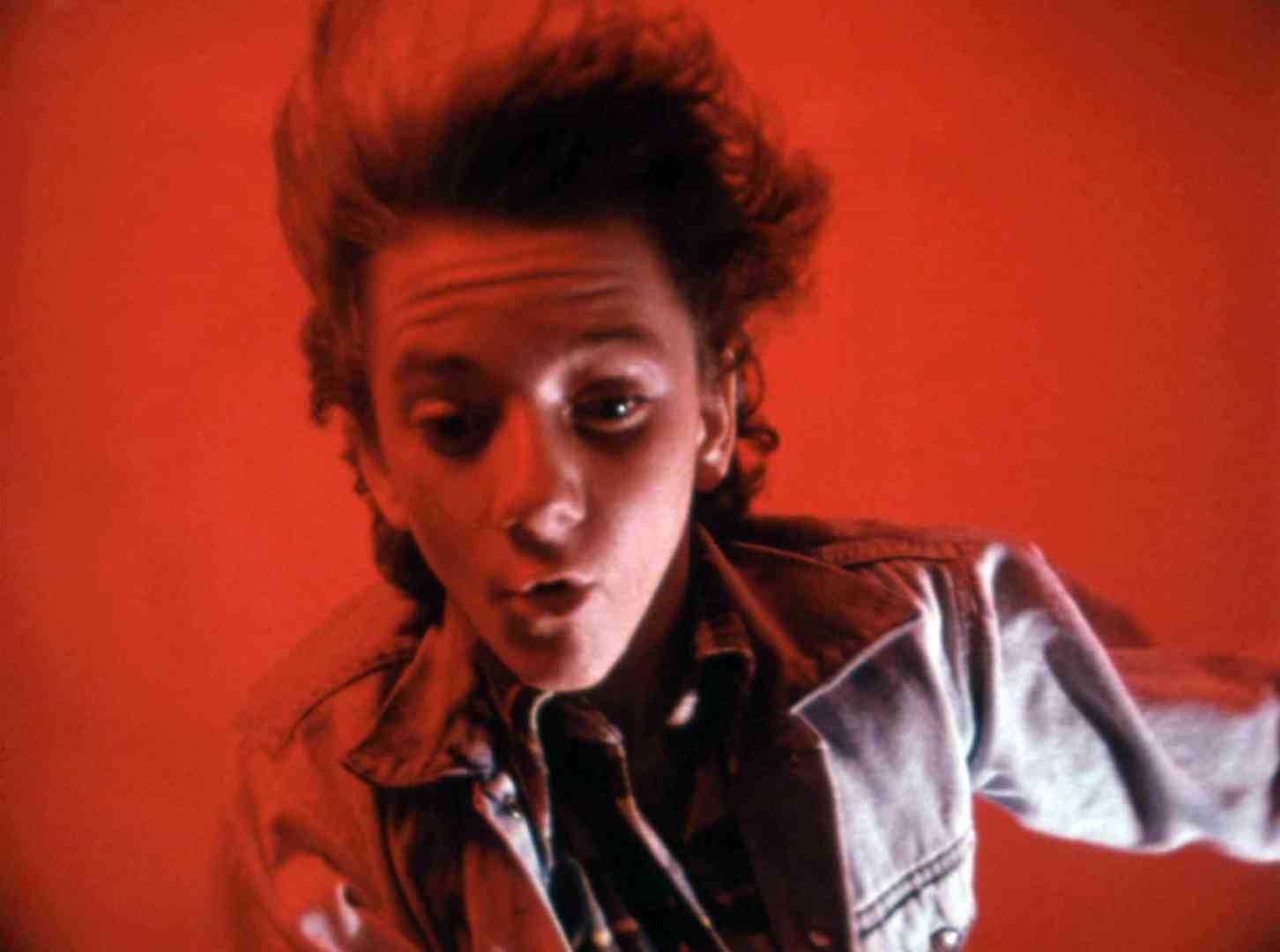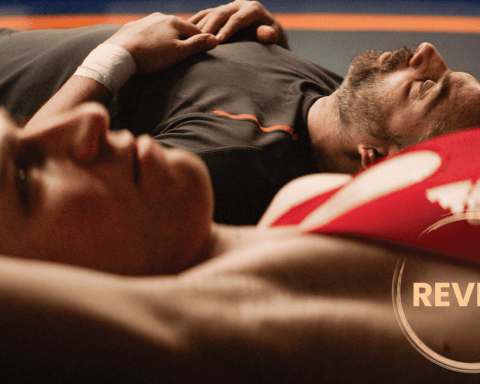
Saint Maud is available to rent, buy and stream.
What do you get if you mix the tense atmosphere of Taxi Driver (1976) with the cutting horror of Carrie (1976) and Repulsion (1965)? The answer is the razor-sharp psychodrama and terror of Rose Glass’ debut feature, Saint Maud – an exquisite exploration of religious extremism and twisted reality. Glass asks us to question the grey area between empathy and horror by weaving a complex web of mental decline. The result is a visual and auditory journey into hell that slowly eats away at your nerves as we follow a young, troubled nurse into a rabbit hole of terror, extremism, self-harm and social isolation.
As the film opens, we find Maud (Morfydd Clark) sitting on a tiled floor, the flashes of a terrible accident surrounding her. Next to her, a patient lies dead, the hospital room shrouded in green, as the shiny tiles reflect a tragedy that will mark the end of Maud’s nursing career. This vivid flashback to Maud’s past sets the unsettling tone of Glass’ film, as it shakes the ground beneath our feet before jumping forward to the present day.
READ MORE: REPULSION
Maud may have been suspended from nursing but isn’t willing to walk away as she starts a new job providing private palliative home care to ex-professional dancer Amanda (Jennifer Ehle). As she walks into Amanda’s gothic mansion, her only mission appears to be one of care and support for a woman whose past fame and glory are slowly being eaten away by cancer. Yet, her religious obsessions and belief that god speaks directly to her are the foundations of her mission. Meanwhile, Amanda is lively and vibrant, her chain-smoking and drinking coupled with cutting remarks and curiosity. She plays with her carers, testing their boundaries for sport as she broods on the life that has slipped through her fingers. Here Amanda sees Maud’s vulnerability but equally enjoys playing with her beliefs like a cat with a mouse. But this game carries deadly undertones as Maud embarks on a saintly mission to save Amanda’s soul from damnation.
We enter Rose Glass’ rabbit hole of terror with the glistening lights of a British seaside town around us, but as we crawl deeper, the lights fade, and the way out becomes unclear, forcing us further into the darkness. Here the interface between Maud’s reality and her inner torment becomes less and less defined as we near the shocking and heart-pounding finale. Morfydd Clark’s ‘Maud’ toys with our empathy due to her vulnerability and apparent innocence. While Jennifer Ehle’s Amanda is spiky, demanding, and challenging but equally vulnerable. Here both characters share mental and physical weaknesses, as they suck us into a psychodrama of exquisite performances.
The dark and dangerous dance between both women is surrounded by the stunning cinematography of Ben Fordesman and the creeping sound design of Paul Davies. But it is Rose Glass’ inspired direction that makes Saint Maud one of the best horrors of the past ten years. Glass balances objectivity and subjectivity, allowing us inside Maud’s damaged world of religious extremism while also allowing us to observe from the sidelines as her world falls apart. Saint Maud is nothing short of formidable, terrorising our minds as its complexity engulfs us in a tsunami of terror.
















You must be logged in to post a comment.